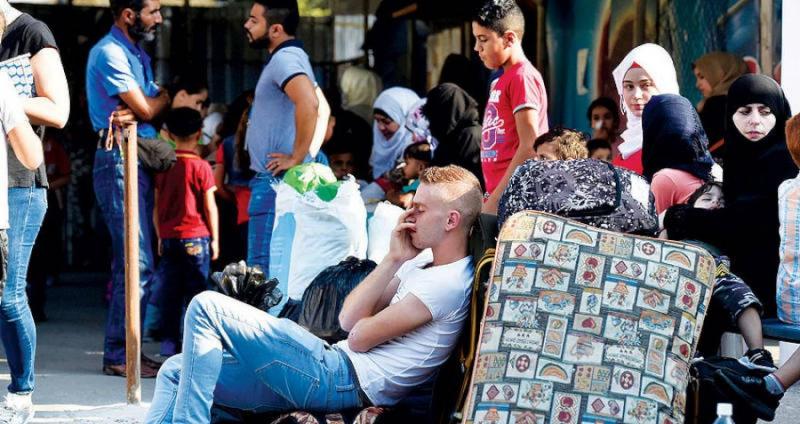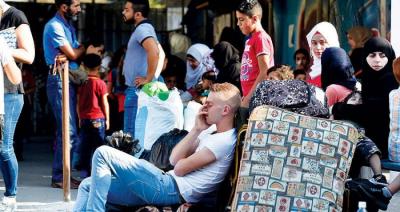Accurate statistics regarding the Syrian diaspora between the homeland and countries of exile are lacking, with claims suggesting the number has reached approximately 130 countries across five continents. Due to the absence of verified general statistics, estimates dominate discourse; however, referencing these requires a level of scrutiny and comparison, moving away from the prevailing politicized narratives amid the ongoing conflict in Syria. Most common estimates indicate that more than half of Syria's population has left, a reasonable assessment given the conflict's duration of over 13 years, which has left catastrophic impacts on the humanitarian and material lives of Syrians across various domains.
The significant Syrian presence in neighboring countries supports the prevailing estimation of Syrians in exile, with estimates suggesting over 6 million in these neighboring countries, around 4 million of whom are in Turkey alone. The second tier of Syria’s neighbors, including Gulf countries and North Africa, also hosts more than 4 million, with roughly 5 million spread across dozens of countries, including over a million in Western Europe.
The large-scale movement of Syrians escaping the epicenter of death and total destruction illustrates their resilience in overcoming the conflicts they could not resolve in favor of their demands for freedom, justice, equality, and a better life amid the international community's negligence. This vast migration circumvented international laws restricting freedom of movement, sometimes evading legal barriers and incurring significant humanitarian costs, leading to the loss of tens of thousands at sea or through borders due to the practices of criminal gangs and violations by official entities, rendering many as refugees or temporary residents.
Although Syrian refugees have encountered legal and administrative restrictions in their host countries, as is typically the case with other refugees, European nations—particularly Germany, France, and Austria—have subjected them to integration systems requiring language acquisition to access education and the labor market. In contrast, other countries are divided between restricted mobility, as seen in Lebanon, and broader freedom of movement, as in Turkey, Jordan, and Egypt, reflecting varying degrees of Syrian mobility at different stages.
Young people and minors, in particular, have successfully learned languages in European countries, opening doors to general and specialized education and job markets, marking the beginning of success and distinction for some Syrians in those nations. Additionally, like in other countries, some Syrians have translated their educational achievements into starting their own businesses, which have manifested in three types of enterprises: investment and commercial companies, primarily in textile industries in Egypt and currency exchange businesses in Turkey; food and automotive trade across most countries; and service sector activities, particularly in restaurants, bakeries, and institutions offering Arabic education, which have become key aspects of the Syrian presence in Europe and the Arab world.
Furthermore, the third type of Syrian activities falls into craftsmanship services, demonstrating a wide array of scales, from large projects to individual endeavors, present in most countries of exile, driven by necessity and opportunity. It is evident that the aforementioned represents a general success for Syrians in exile, predominantly based on individual initiative and personal efforts in education, work, and investment. Frequently, individual success, characterized by expertise and high readiness for work and follow-up, represents the reasons for this success—factors often absent in collective or joint projects among Syrians, particularly in light of a lack of shared spirit, experiences, or the benefits of collaborative work.
The realities surrounding the existence and activities of Syrians in exile reveal weaknesses and deterioration, extending to the failure of collective and joint projects. This issue affects not only economically-oriented initiatives but also cultural and social projects, reaching into political endeavors. Over the past decade, Syrians have engaged in numerous initiatives in these areas, yet they have not achieved the anticipated success, with those that have persisted suffering from irremediable flaws. A prime example can be observed in political groups, specifically the "National Coalition," the primary opposition force in exile, as well as in civil society organizations and their alliances present in most diaspora gatherings.
Amid the complexities of the circumstances and contradictory outcomes of Syrians' efforts in exile, there is a clear need to scrutinize collective and joint projects and explore pathways to their success, transforming their operational frameworks. This is necessary not only to serve the Syrians, their cause, and their country but also as a means to maintain and enhance the individual successes achieved, ensuring their continuity and growth, and reinforcing the presence and future role of Syrians in the societies of which they have become a part.




